-
Pudd'nhead Wilson and Those extraordinary twins: Authoritative texts, textual introduction and tables of variants criticism
Mark Twain
Hardcover (Norton, Jan. 1, 1980)A slave of mixed blood substitutes her son with her master's son.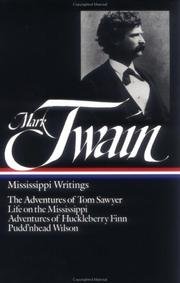
-
Pudd'nhead Wilson
Mark Twain
Paperback (CreateSpace Independent Publishing Platform, Sept. 27, 2016)The setting is the fictional Missouri frontier town of Dawson's Landing on the banks of the Mississippi River in the first half of the 19th century. David Wilson, a young lawyer, moves to town and a clever remark of his is misunderstood, which causes locals to brand him a "pudd'nhead" – a nitwit. His hobby of collecting fingerprints does not raise his standing in the townsfolk's eyes, who see him as an eccentric and do not frequent his law practice. Z
Z
-
The Tragedy of Pudd`nhead Wilson
Mark Twain
Paperback (Jazzybee Verlag, Sept. 28, 2017)Mark Twain's book is a story of mixed babies and the ingenious detection of crime. It is not altogether another " Hucklebury Finn." On the other hand, it is a relief to find that it is not another " Yankee at King Arthur's Court." Roxy, the slave woman who changes the babies, is a delightful character who stirs us with a warm and ready interest. For the rest, there is little said to rouse enthusiasm. Puddn'head Wilson himself is unreal, too much of the deus ex machina, though there is much that is Twainian in the specimen sayings that illustrate his wisdom. Every chapter is headed with these extracts, and it is clear that Pudd'nhead Wilson is to Mark Twain what Poor Richard was to Franklin. In the means by which Wilson detects the murderer of Judge Driscoll we have an ingenious adaptation of the system of thumb-impressions, originated by Sir W. Herschell, in India, as a method of identifying criminals. It is cleverly, if not entirely persuasively, worked out in the story. But the sketch of Roxy, the negress, is by far the finest thing in the book.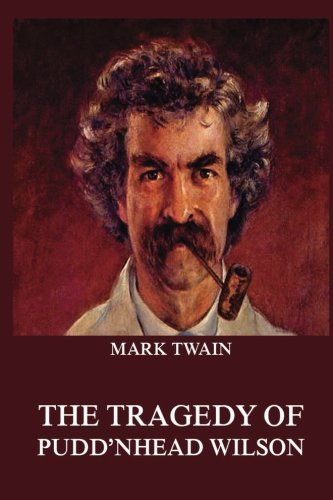
-
Pudd'nhead Wilson
Mark Twain
Mass Market Paperback (Signet Classics, Jan. 31, 1964)None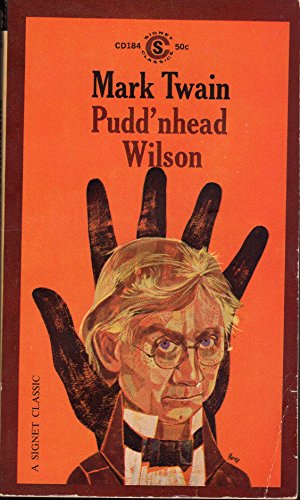 Z+
Z+
-
Pudd'nhead Wilson
Mark Twain, Charles Dudley Warner
Hardcover (Palala Press, Sept. 16, 2015)This work has been selected by scholars as being culturally important, and is part of the knowledge base of civilization as we know it. This work was reproduced from the original artifact, and remains as true to the original work as possible. Therefore, you will see the original copyright references, library stamps (as most of these works have been housed in our most important libraries around the world), and other notations in the work. This work is in the public domain in the United States of America, and possibly other nations. Within the United States, you may freely copy and distribute this work, as no entity (individual or corporate) has a copyright on the body of the work.As a reproduction of a historical artifact, this work may contain missing or blurred pages, poor pictures, errant marks, etc. Scholars believe, and we concur, that this work is important enough to be preserved, reproduced, and made generally available to the public. We appreciate your support of the preservation process, and thank you for being an important part of keeping this knowledge alive and relevant. Z
Z
-
Pudd'nhead Wilson
Mark Twain, Wright Morris
Mass Market Paperback (Signet Classics, Jan. 1, 1964)A slave of mixed blood substitutes her son with her master's son. Z+
Z+
-
Pudd'nhead Wilson
Mark Twain
Hardcover (Book-of-the-Month Club, Jan. 1, 1992)Switched at birth by a young slave woman attempting to protect her son from the horrors of slavery, a light-skinned infant changes places with the master's white son. This simple premise is the basis of Pudd'nhead Wilson, a compelling drama that contains all the elements of a classic 19th-century mystery: reversed identities, a ghastly crime, an eccentric detective, and a tense courtroom scene. First published in 1894, Twain's novel bristles with suspense. David "Pudd’nhead" Wilson, a wise but unorthodox lawyer who collects fingerprints as a hobby, wins back the respect of his townspeople when he solves a local murder in which two foreigners are falsely accused. Witty and absorbing, this novel features a literary first — the use of fingerprinting to solve a crime. This gem was Twain's last novel about the antebellum South; and despite its frequent injections of humor, it offers a fierce condemnation of racial prejudice and a society that condoned slavery.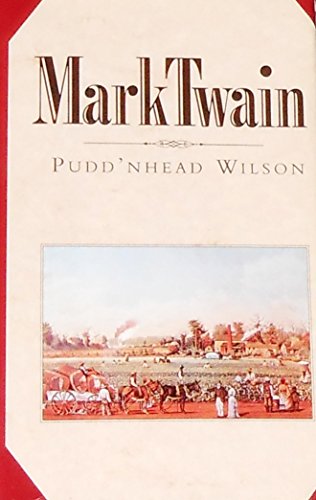
-
Pudd'nhead Wilson
Mark Twain
Hardcover (New American Library, July 6, 1964)Vintage paperback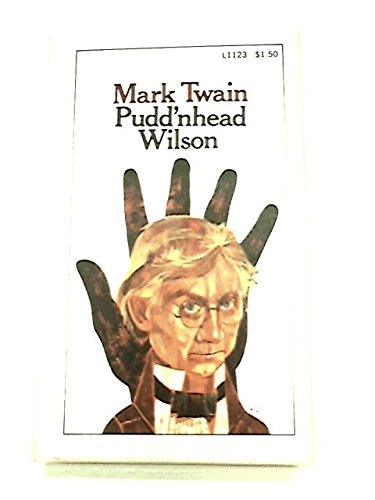
-
Pudd'nhead Wilson
Mark Twain
Paperback (Wilder Publications, Feb. 13, 2014)Two men switched at birth discover the truth about their heritage and neither will ever be the same. A novel about fate and racism, this was Twain's late important novel. There is no character, howsoever good and fine, but it can be destroyed by ridicule, howsoever poor and witless.
-
Pudd'nhead Wilson
Mark Twain
Paperback (CreateSpace Independent Publishing Platform, Feb. 1, 2017)Pudd'nhead Wilson is a novel by Mark Twain. It was serialized in The Century Magazine (1893–4), before being published as a novel in 1894.The setting is the fictional Missouri frontier town of Dawson's Landing on the banks of the Mississippi River in the first half of the 19th century. David Wilson, a young lawyer, moves to town and a clever remark of his is misunderstood, which causes locals to brand him a "pudd'nhead" (nitwit). His hobby of collecting fingerprints does not raise his standing in the townsfolk's eyes, who see him as an eccentric and do not frequent his law practice. Pudd'nhead Wilson moves into the background as the focus shifts to the slave Roxy, her son, and the family they serve. Roxy is only one-sixteenth black, and her son Valet de Chambre (referred to as "Chambers") is only 1/32 black. Roxy is principally charged with caring for her inattentive master's infant son Tom Driscoll, who is the same age as her own son. After fellow slaves are caught stealing and are nearly sold "down the river", to a master further south, Roxy fears for her life and the life of her son. First she decides to kill herself and Chambers to avoid being sold down the river, but then decides instead to switch Chambers and Tom in their cribs so that her son will live a life of privilege. Z
Z
-
The Tragedy of Pudd'nhead Wilson
Mark Twain, Reed
Paperback (CreateSpace Independent Publishing Platform, April 24, 2016)Why buy our paperbacks? Standard Font size of 10 for all books High Quality Paper Fulfilled by Amazon Expedited shipping 30 Days Money Back Guarantee BEWARE of Low-quality sellers Don't buy cheap paperbacks just to save a few dollars. Most of them use low-quality papers & binding. Their pages fall off easily. Some of them even use very small font size of 6 or less to increase their profit margin. It makes their books completely unreadable. How is this book unique? Unabridged (100% Original content) Font adjustments & biography included Illustrated About The Tragedy of Pudd'nhead Wilson by Mark Twain The book takes place in the fictional Missouri frontier town of Dawson's Landing on the banks of the Mississippi River in the first half of the 19th century. David Wilson, a young lawyer, moves to town and a clever remark of his is misunderstood, which causes locals to brand him a "pudd'nhead" – a nitwit. His hobby of collecting fingerprints does not raise his standing in the townsfolk's eyes, who see him as an eccentric and do not frequent his law practice. Z
Z
-
Pudd'nhead Wilson
Mark Twain
Hardcover (Palala Press, Aug. 31, 2015)This work has been selected by scholars as being culturally important, and is part of the knowledge base of civilization as we know it. This work was reproduced from the original artifact, and remains as true to the original work as possible. Therefore, you will see the original copyright references, library stamps (as most of these works have been housed in our most important libraries around the world), and other notations in the work. This work is in the public domain in the United States of America, and possibly other nations. Within the United States, you may freely copy and distribute this work, as no entity (individual or corporate) has a copyright on the body of the work.As a reproduction of a historical artifact, this work may contain missing or blurred pages, poor pictures, errant marks, etc. Scholars believe, and we concur, that this work is important enough to be preserved, reproduced, and made generally available to the public. We appreciate your support of the preservation process, and thank you for being an important part of keeping this knowledge alive and relevant.